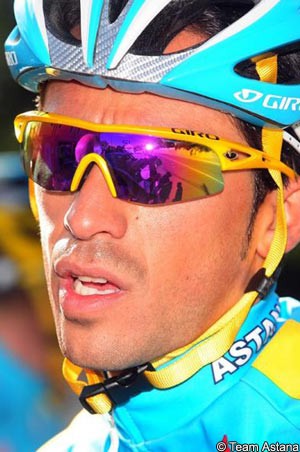Spanish federation president believes matter is certain to go to CAS
 Spanish cycling federation (RFEC) president Juan Carlos Castaño has said that he believes the final conclusion of the Alberto Contador case is some way off, with a ruling from his federation not due for another month and then appeals likely after that.
Spanish cycling federation (RFEC) president Juan Carlos Castaño has said that he believes the final conclusion of the Alberto Contador case is some way off, with a ruling from his federation not due for another month and then appeals likely after that.
He was reacting to earlier suggestions by UCI president Pat McQuaid, who said that the governing body wanted a prompt resolution to the case.
“If it was so clear, why did the UCI not resolve it when it was there [with them] for two months?” he said in an interview with AS today. “To reach a guaranteed resolution, a procedure must be observed. I do not expect a solution before mid-January.”
After that, he believes a second process will begin, and this will take up more time. “My opinion is that the case will end in the CAS, because all parties will not be satisfied at the end,” he stated, referring to the near-certainty that Contador will appeal a heavy sanction, while WADA and the UCI will contest something which is too light. “The case is not easy and requires a thorough study.”
Because of that, Contador’s racing schedule is likely to be considerably affected, even if he is ultimately cleared.
The 27 year old won his third Tour de France this summer, but then learned several weeks later that he had tested positive for Clenbuterol on the second rest day of the race. In a departure from usual procedure, the UCI did not promptly announce the details of that positive test, nor of the confirmation given by the B sample analysis.
Instead, the news came out after German TV station ARD was tipped off that the Spaniard had failed an anti-doping control. It approached the UCI for comment, and soon afterwards Contador’s agent released a statement saying that there was a problem.
The UCI stated afterwards that it didn’t announced the results sooner as the case was a complex one. After that, it worked with WADA, preparing documentation which was subsequently sent to the RFEC, along with a request for a disciplinary action to be opened.
The RFEC received those on November 8th and under UCI rules, a decision should have been made within one month. Fines begin to apply after those 30 days. If it is indeed mid-January before the process is completed, the RFEC is likely to owe a considerable amount.
Progress is likely to have been slowed by the fact that the three arbitrators appointed have reportedly little history of handling anti-doping cases.